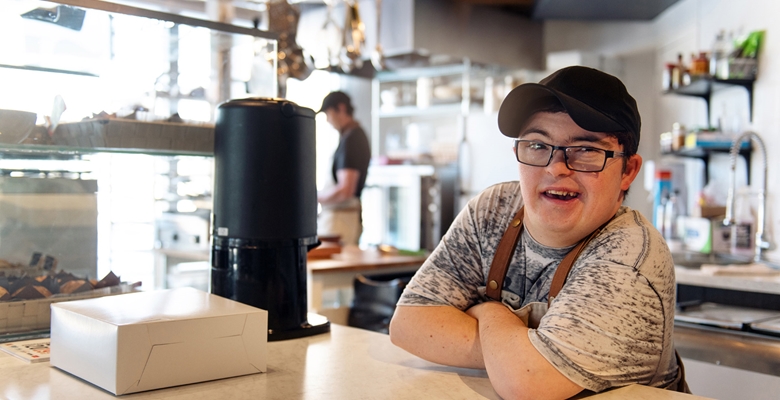Disabled People and Employment
The Scottish Government is focused on creating a more successful Scotland, with opportunities for all to flourish via sustainable and inclusive economic growth. Ensuring that the rights of disabled people are respected and maintained is central to inclusive growth.
A Fairer Scotland for Disabled People: Employment Action Plan was published by the Scottish Government on December 2018. It outlines the actions Scottish Government will take to meet its ambitions to at least halve the disability employment gap in Scotland.
Definition of Disability
There are two main models when considering disabled people:
- The Medical Model of Disability focuses on a person's impairment or medical condition, suggesting this is the cause of disabled people being unable to access goods and services, or to participate fully in society.
- The Social Model of Disability recognises that it is the barriers that society creates that prevent disabled people from participating fully in daily life, and not their impairment or difference. Barriers can be physical, like buildings not having accessible toilets, or they can be caused by people's attitudes to difference, like assuming disabled people can't do certain things (Scope, 2020).
For purposes of employment law in the UK, a person is considered disabled if they have "a physical or mental impairment that has a substantial and long-term effect on their ability to carry out normal day-to-day activities". This is based on the Equality Act (2010) definition, but would be considered to follow the medical model as it focuses on what disabled people cannot do.
However, the Social Model of Disability allows us to better identify, and tackle the barriers that disabled people face and as such it is the Scottish Government's and Disabled People's Organisations preferred model. Likewise, we would encourage employers to adopt the Social Model when designing and modifying their policies, and in the way they interact with disabled people.
Fair Start Scotland
Fair Start Scotland, Scotland's employment support service, has been developed by listening to people with lived experience and who use employment support services, including disabled people.
There are lots of people who want to work but find it hard to find the right job that meets their needs and is flexible enough for their circumstances
Fair Start Scotland treats people with dignity and respect by providing flexible support, taking into account personal circumstances and removing barriers to accessing work. You can read more about Fair Start Scotland here.
Information and Guidance
The best people to advise on how to recruit and retain disabled people are disabled people themselves and employers are encouraged to engage directly with disabled people. Engagement can be done by communicating with Disabled People's Organisations (DPO's) who can offer advice, guidance and training including bespoke disability equality training.
There are some useful links to DPOs and other organisations below. If you have a resource you would like to add, please contact Employability SG Mailbox.
DPOs offering employment services
- Glasgow Centre for Inclusive Living and Equality Academy
- Glasgow Disability Alliance
- Inclusion Scotland
Other Organisations
- Action on Hearing Loss (Via Louder than Words website)
- ENABLE
- Into Work (Edinburgh and Midlothian)
- Project Search
- Remploy (Scotland)
- Royal National Institute of Blind People (RNIB)
- Scottish Commission for Learning Disabilities
- Scottish Union of Supported Employment (SUSE) - can link employers and jobseekers with specialist providers in their local area
- Skills Development Scotland
- Versus Arthritis
There are also a number of ways Employers can demonstrate commitment to providing fair and sustainable work for disabled people:
- Make the Scottish Business Pledge
- Use the Fair Work assessment tool to self-assess their work and workplace through the five dimensions of Fair Work which are; Effective Voice, Opportunity, Security, Fulfilment and Respect.
- Become a Disability Confident employer
Finally, the European Human Rights Commission also has some information on employing disabled people.
Further information
To keep up to date on any developments or news with regards to disabled people in the workplace, please sign up for the Employability in Scotland e-bulletin from the Scottish Government.
For more information on the work being done to reduce the disability employment gap in Scotland, please contact the Disability Employment Policy Team
